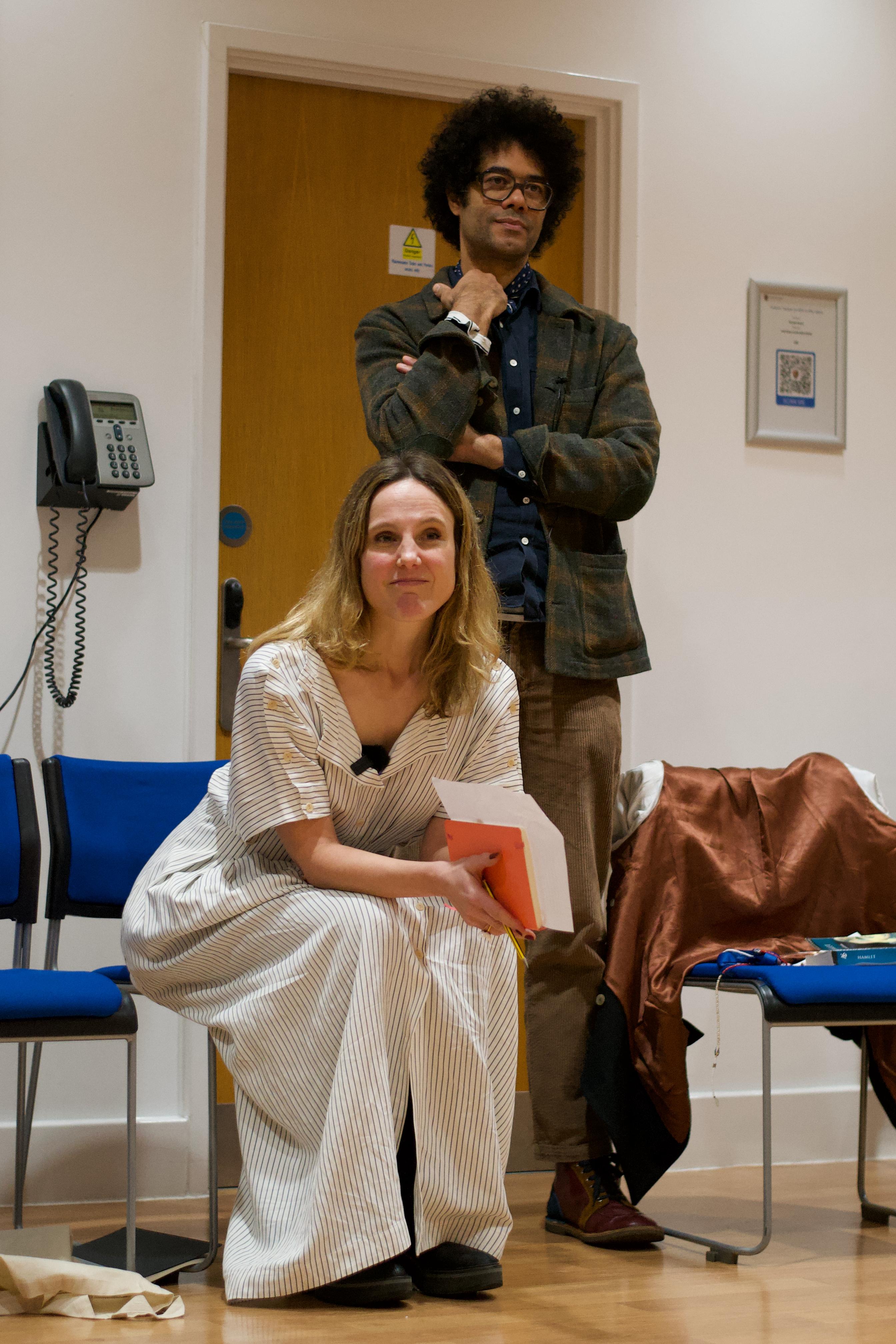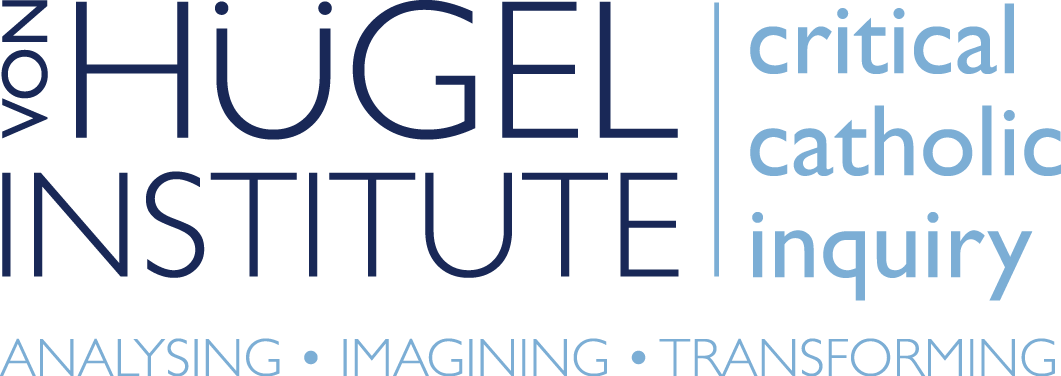
The ‘Shakespeare and the Common Good?’ initiative, launched in Spring 2023 to explore how Shakespeare both succeeds and fails to galvanise shared pursuits of the common good, continues to create dynamic workshop opportunities for St Edmund’s students, led primarily by VHI Distinguished Affiliates Ms Lydia Fox and Mr Richard Ayoade.
After the great success of the King Lear workshop in Spring 2023, Ms Fox and Mr Ayoade led another workshop in November for students to read and perform Hamlet’s ‘To be, or not to be…’ soliloquy. From casting fourteen different Hamlets in conversation to walking in rhythm, facilitators guided students through a variety of acting exercises that primarily challenged participants to listen more closely to Hamlet’s infamous words, and to one another—a difficult task given how deeply the speech has penetrated cultural subconsciousness.
The performance-based approach encouraged significant conversation and real-world reflection among students, prompting participants to consider how suffering can at once lead a person to draw in on themselves and to plea for external human connection—ever the more profound given the analogous aspects of Hamlet, a university student, with students living at St Edmund’s.
‘Before, I understood it as this experience about the self, but performing it as a group moved it into the social and political, particularly thinking about thoughts displacing other thoughts’, said Jake Turner (Education). ‘It was interesting seeing how people ignored each other or listened as others spoke…What can help [us] is hearing someone else speak’.
‘I think before I saw [this speech] as studying what it is to be human, but now I see it as what it is to be alone with your thoughts’, said Helen Martin (English). ‘There’s a loneliness to it but also a refusal to reach out, and it spirals in on itself. That’s why it doesn’t come to a conclusion, because to rupture this spiral you need another person to come in. It’s a study of being on your own and refusing others’.
‘Why do we bother learning these texts, what’s the point in them?’ asked Flora O’Neill (Education). These speeches ‘have a ‘bigness’ that modern language cannot capture because we are focused on realism and naturalism. Being on stage and being able to say these lines, you get to express [something] we all feel, [but that] you don’t always get to express’, she concluded. There is a ‘catharsis’ in ‘performing’.
Further workshops will be curated in the upcoming Lent and Easter terms, using the College’s newly adopted THRIVE framework as a guiding blueprint.
Photography Credit: Cian Sacker Ooi.


